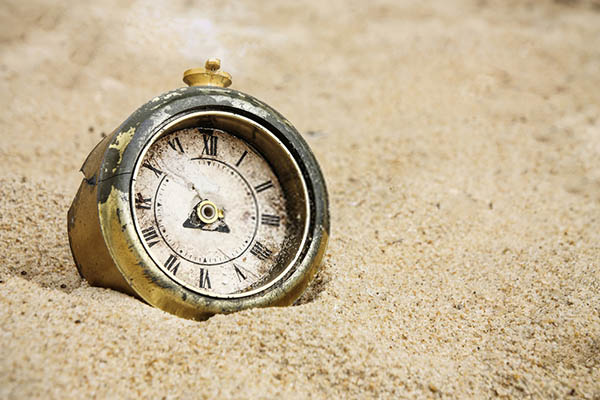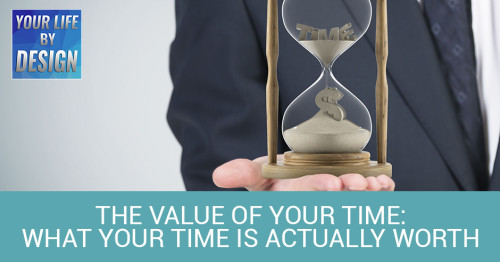Time Management: How To Be More Productive With Less Time
Let’s have a look at your life by design model. We all have things to do, people to see and targets to hit. Many of us either run our own businesses or work for others. If there’s one thing that we could have more of, apart from money, is time. Since the advent of the industrial revolution, as access to information and ease of communication started speeding up, we have found ourselves with less and less time. The neurosis of modern civilization is blocked time. We are seeing more people getting sick and dying, more divorces and failed relationships, more alienation of the young because we have lost control of time. Many of my clients and patients have struggles involving relationships, achieving targets and even being able to sleep. Others struggle to develop new habits to support new life goals and ambitions. At the heart of all these struggles is an easy relationship with priorities and resource allocation.
I’ve long been fascinated by how people use their energy. I’ve always looked at cutting-edge ways to do things more easily. My calendar has been chocked full of things to do and targets to hit. I thought I worked out a very good energy management system. However, as time went on, I began to realize I was working harder and harder but feeling less and less effective. Many of my strategies and methods were becoming less productive. I wonder if you have felt this way too. This led me to review some groundbreaking research around time management and what neuroscience has to say about how our brain processes time as we grow older and how we processed time as we become more stressed.
After almost 30 years of feeling I had an effective time management system, I reached the limits of what I knew. As the number of companies I was running and the complexity of the projects I was involved in grew, I realized that a brand-new approach was called for. I could no longer repeat the same old strategies. I became aware that most people did not value their time enough. They often did not use their time in fruitful and effective ways. Also at different times in our lives, as we go through life cycle changes, our priorities and values change as well. This would dramatically impact our relationship with time and productivity. Simply trying to squeeze more into the day will no longer work or be effective. We have to learn to focus on higher ticket items in our lives and businesses. From all of these perceptions and the experience of working with more than 15,000 individuals, a new model of time management was born. This model includes the latest findings in neuroscience, concepts and systems thinking and meditative practices, as well as concepts familiar to energy management. The graduates of my programs have asked me to formally put all these concepts together.
With this model of time management, you will begin to understand your personal day-to-day time rhythms as well as the life cycles you move through. You will learn about the value of your time and what you can do to increase this value. As you do so, you will find you’re doing more and more and less and less time easily and effortlessly. There are three core elements of this process. They are evaluate, discard and implement. The first process, evaluate, is to identify the difference that makes the difference. One of my seminar participants once accused me of making life boring by insisting on prioritizing and planning. She felt she wanted to be in the moment and be spontaneous. It took a few years before she realized that she could only be truly spontaneous when she had a disciplined approach, develop core skills and then set aside time for spontaneity.
In order to understand what matters to you, you need to explore and evaluate. Those who eventually became crystal clear about what methods do so because they had the benefit of hindsight, experience and evidence that something worked for them. To explore all that is relevant and possible, you need a base from which you can narrow down what is clearly the call for you, the crucial difference that makes the difference. You have to explore and evaluate a broad range of possibilities in depth before you can conclude about what works. Should you need to test things out in small ways before commenting in a big way, do what matters to you. Contrast this approach. With many Singaporeans who finished school and go to college, then polytechnic or a university, they then go out into the workforce. They know nothing about what truly matters in their personal, emotional and professional lives.
They accept conventional perspectives about what is important. Then in their late 30s or 40s, they start struggling with overwhelming doubt. In private conversations in my office, they often plentifully ask me, “What is my life purpose?” If you believe as I did when I was living a compulsive life, that being driven and being overly busy was a sign of productivity, you also would have believed that creating the space and time to think, explore and reflect is a luxury. Yet these very activities are the cure to the curse of focusing on trivialities while missing the core issues in your life yet crucial for identifying the difference that makes the difference. Dedicate that life to silence. Spend significant chunks of time exploring, questioning, arguing, and thinking. The purpose of the exploration is to hone on what truly matters. To focus on the difference that makes the difference.
The second one is to discard the irrelevant. However, are you ready to get rid of what you should throw away? It is not enough to identify what activities and commitment do not work for you. You have to actively discard them. I will show you more in the episodes how to discard the clutter in your life so that you can have a well-designed and meaningful life and make vital contributions to what matters. You will also do so in such a way that you become more respected, acknowledged and valued in your home, workplace, community and society at large.
Getting rid of things and projects in your life and business will not be easy. There will be that nagging fear that you gave away something that you would desperately need later on in your life. This feeling is perfectly normal. Research has shown that when we don’t own something, we value it less. Those that we own, we assign a higher value to and so find it harder to dispose of. The critical question when deciding what to declutter is if I did not have this opportunity, what would I be prepared to sacrifice to get access to it? However, remember that in the life design model, whenever you’re going to say no to something, you’re agreeing by default. It’s easier to become clear by asking yourself. Instead of saying yes to every opportunity and activity, what would I say no to? This question will clear the cobwebs and give you a greater clarity for you and your team. It is the core questions that will allow you to make breakthroughs in your life, your career, and your business.
Last but not least is effortless implementation. Whether our plan is to plan a birthday party for our child, climb up the ladder at work or complete a project at work, we tend to think of implementation as hard work, something we need to force and make happen. However, the life design model is very different. We don’t need to force implementation because the prior stages to evaluate and discard our system has been created for removing obstacles and making implementation effortless. These three elements evaluate, discard and implement are part of an iterative cyclical process that moves you towards higher levels of performance and personal satisfaction.
To achieve this effortless state, all the elements are required. The previous two stages have been well explored in the necessary steps clearly delineated. Appropriate resources have been acquired, timelines have taken into consideration, the flow of energy and resources and how people operate. While effortlessness comes easy, you need to plan for it to happen. While compulsive types force execution of plans, those who understand the design life implement effortlessly. When all unnecessary details have been eliminated, habits automated and sequences streamlined, implementation becomes a seamless piece of the whole. We naturally want to do things the easy way.
One lucky audience that poses a review on iTunes will win a private confidential consultation and coaching with me on discovering your soul’s purpose. I will lead you on a personal journey to discover the unique mind-body psychosomatic map of your life. You will get a detailed report and a 45-minute consultation with me that is worth thousands. On this podcast, I’m going to help you design a life that works so you are able to say yes to the things that matter and eliminate everything else that slows you down. The clearer you can be about how to organize your daily life to support your bigger vision, the more you step into your true potential. Stay on track and accomplish all that you want and deserve. Are you ready to make that happen? Feel free to reach out to me to ask your questions at AskDrSun.com. Your life is a gift, design it. Do what matters and join me as we get closer to designing the life of your dreams.





